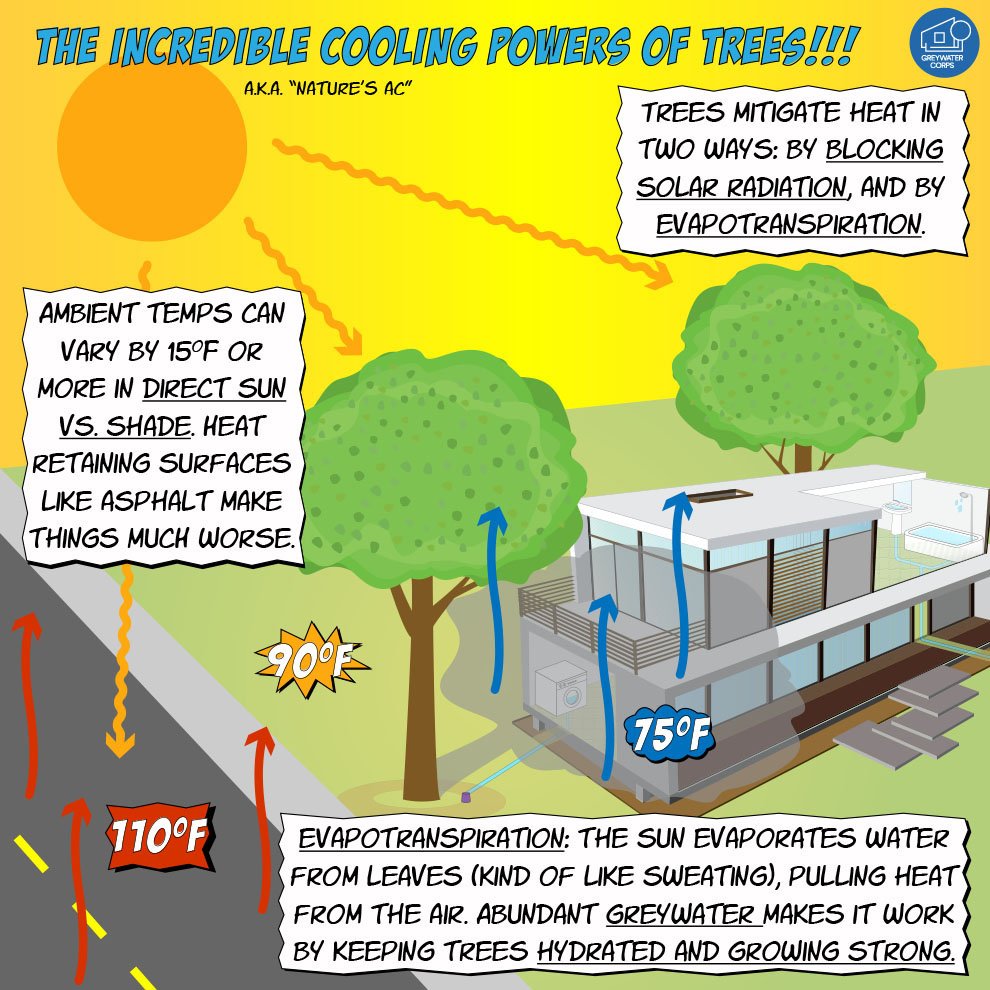Greywater for Climate
Greywater systems (as well as their rainwater counterparts) are emerging as powerful tools to combat extreme heat waves and build resilience against the effects of climate change. They achieve this by providing deep root irrigation, building healthy organic soil, and cutting energy costs associated with moving water. With more frequent and severe heat waves setting in around the world, the time to act is now.
Deep Root Irrigation
Abundant greywater creates a permanent oasis. The daily flow of water is delivered subsurface, where instead of evaporating it can soak deep into the ground, storing moisture for trees and other deep-rooted plants to access in times of drought. Deep watering fosters robust root systems that enable plants to survive periods of extreme heat.
Long term survival is key for plants to be effective in fighting climate change – allowing them to grow large enough to provide shade as well as capture and sequester carbon throughout their lifespans. Plants have been proven to lower temperatures by providing shade and through evapotranspiration, and trees have been found to lower air conditioning costs in detached houses by 20-30%.
In addition, plant cover doesn’t store heat like many low-water landscaping surfaces do. Gravel, pavement, decomposed granite and turf don’t need watering, but they heat up to extreme temperatures and fuel the dreaded urban heat island effect.
Healthy Organic Soil
Most of our greywater systems deliver untreated greywater into trenches filled with woodchip mulch. The greywater contains organic matter which, when combined with the carbon in mulch, generates healthy, organic soil via the same process as composting. Organic soils have been shown to absorb and retain more water. They also foster healthy plants which are able to sequester more carbon underground via photosynthesis.
Moving and Treating Water
19% of the electricity used in California is devoted to moving and treating water. By reducing our need for imported water, as well as the flow to water treatment plants, greywater has a direct impact on our energy consumption. Reusing greywater and rainwater isn’t the whole answer, but it needs to be part of our strategy to adapt.
A New Paradigm
It’s a new era and the old ways don’t apply anymore. As we reevaluate our energy systems and how to remake them for a brave new world, we must do the same for our water systems. Greywater and rainwater can no longer be considered expendable waste, but emerge as invaluable resources. There is hope in learning from the past and seizing these new opportunities.




